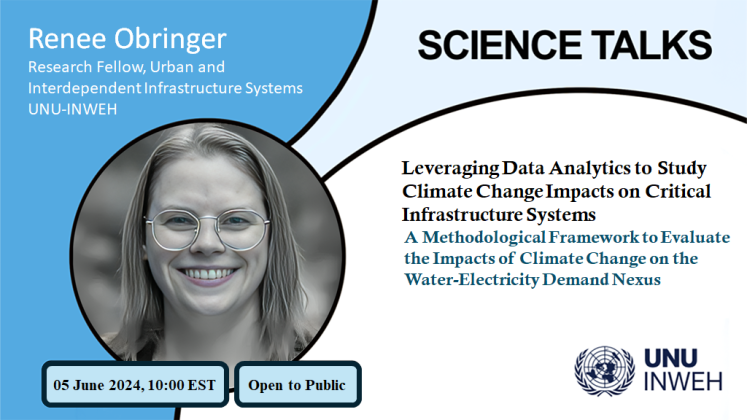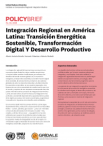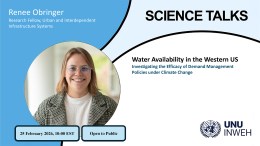Urban systems are interconnected on every level—from the physical and cyber infrastructure networks, such as roads, the power grid, and water pipes, to the supply and consumption of services, such as water, electricity, and mobility. Focusing on water and electricity systems, this talk will discuss a methodological framework to evaluate the impacts of climate change on the water-electricity demand nexus. The framework leverages a state-of-the-art statistical machine learning algorithm to simultaneously predict the coupled water and electricity demand as a function of the climatic conditions. This work represents a step toward providing utility managers with information on the future demand structure, a task imperative for improving urban resilience. Faced with rapid urbanization and intensifying climate change, it will become increasingly important to understand the relationship between climate change and urban systems and the impact people can have on these systems.
In this talk, Dr Renee Obringer will discuss a methodological framework that evaluates the impacts of climate change on the water-electricity demand nexus, focusing on water and electricity systems. The framework leverages a state-of-the-art statistical machine learning algorithm to simultaneously predict the coupled water and electricity demand as a function of the climatic conditions - toward providing utility managers with information on the future demand structure, which is imperative for improving urban resilience.
Watch the video
Speakers

Dr. Renee Obringer
Research Fellow, Urban and Interdependent Infrastructure Systems
UNU-INWEH






